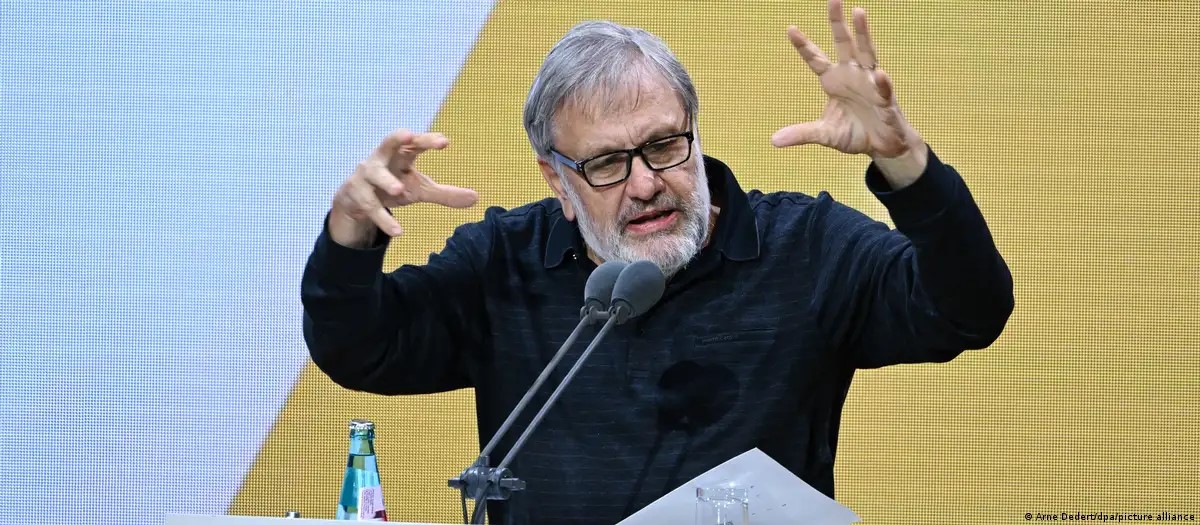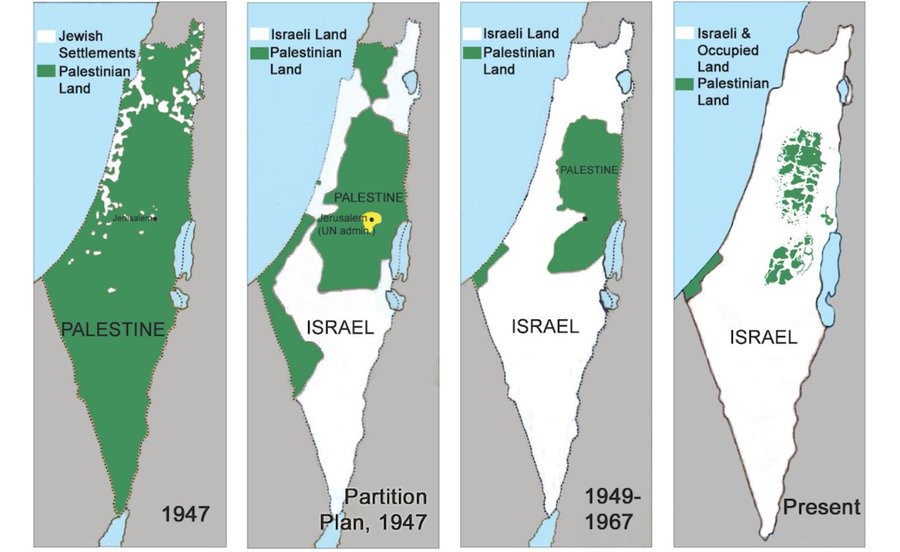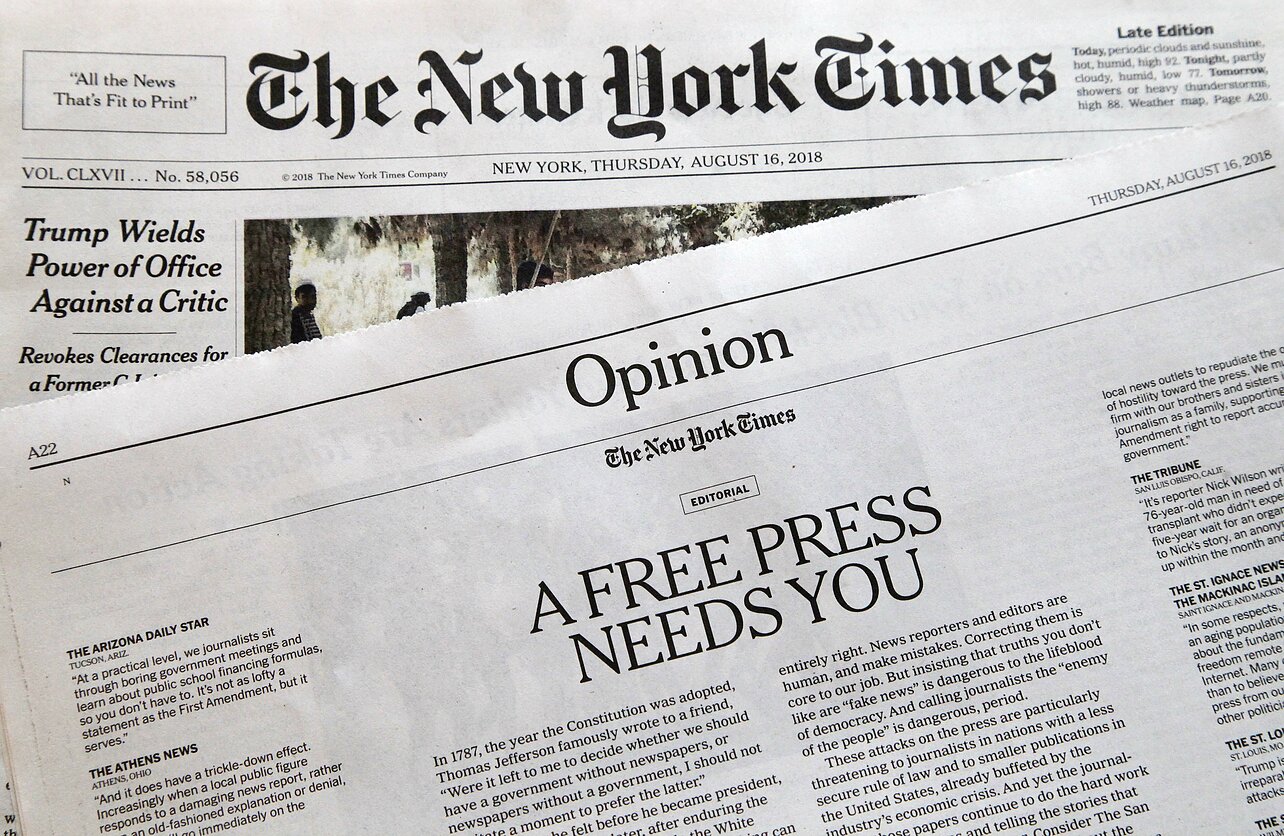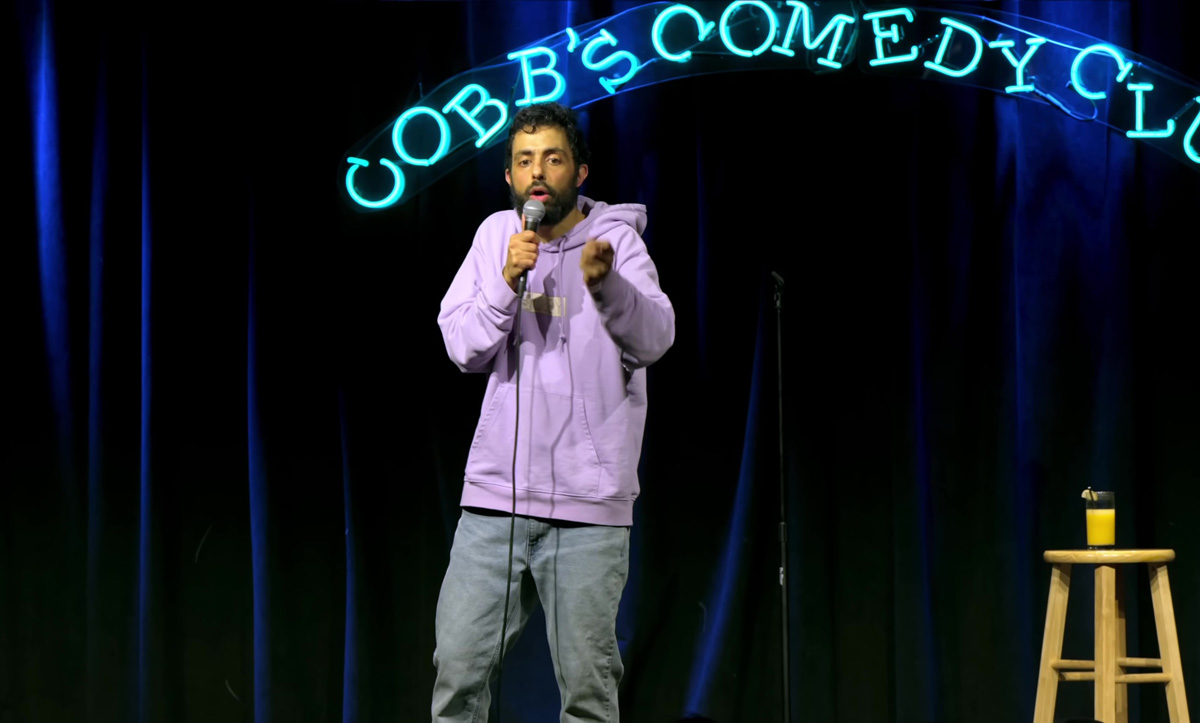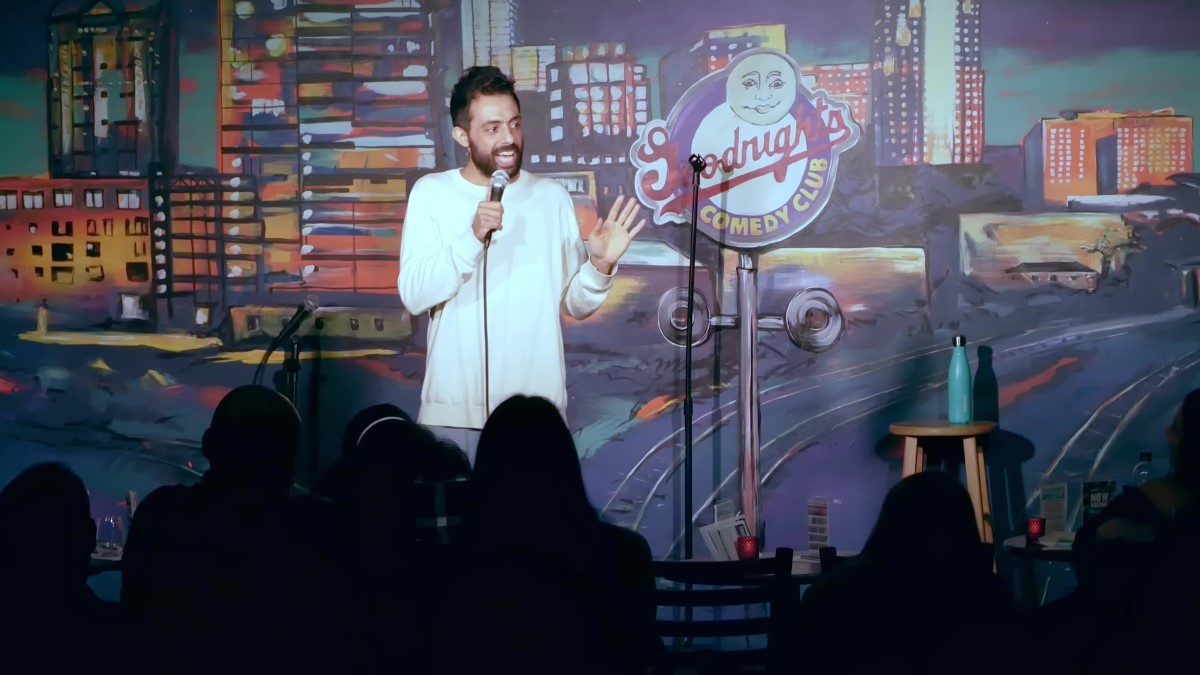At the inaugural event of the Frankfurt Book Fair on October 17, 2023, the Slovenian philosopher Slavoj Žižek addressed the issue of the war between Israel and Hamas. Žižek denounced the terrorist attacks by Hamas on Israelis, however, he emphasized the importance of understanding the historical context and hearing the Palestinian perspective to gain a deeper understanding of the conflict. His remarks, which drew parallels between the Israeli government’s settlement strategy and Hamas’ annihilation doctrine, elicited strong responses from the attendees.
* * *
[Music]
Wait with the applause. At the end you will not applaud. I’m proud to be here at the book fair because books, as we heard it again and again today, are needed more than ever. Without them, there is no solution to the terrifying Gaza War. Why? I unconditionally condemn the Hamas attack on Israelis, close to Gaza border, without any ifs and buts, and I give Israel the right to defend itself and destroy the threat. However, I noticed a strange thing: the moment one mentions the need to analyze the complex background of the situation, one is, as a rule, accused of supporting or justifying Hamas terrorism. Are we aware how weird this prohibition to analyze, to see the complexity is? In what society does this prohibition belong?
Here, my first provocation: In a society which is structured like Waben honeycomb, what an idiot did choose this as a light work? Do you know how honey [bees] live? It’s the most totalitarian society you can imagine. More than 80% are women who are de facto castrated, not allowed to develop sexually, they just work. Then you have one queen who, once in a lifetime, has sex with 10 men, and when they have an orgasm, the finishes are immediately swallowed by her. No thanks, I don’t want to live in such a society.
So, let me go to my point. The title of a recent dialogue on anti-Semitism and boycott, des, and so on in Der Spiegel was of where anti- is, potential anti-Semite, I translate: who is an anti-Semite determines the Jew, and not the potential anti-Semite. Okay, sounds logical. The victim itself should decide if it is really a victim. But does not the same also hold for Palestinians? Who should be able to determine who is stealing their land and depriving them of their elementary rights? And I want to draw your attention to a beautiful detail. Today, only I think it was the very last word of the Slovene president’s speech, correct me if I’m wrong. This was only once that the word “Palestinian” was pronounced. It was just Hamas versus Israel. I’m sorry, but you have to include in the situation millions of Palestinians.
Further point: by analyzing the background, I don’t mean the utter stupidity masquerading as deep wisdom. You know that saying, “An enemy is someone whose story you have not heard.” Sorry, I read Hitler’s Mein Kampf, I heard his story, and I love Nazism not more, but even less. Here are the two main stories about Israel today: Ismail Haniyeh, the leader of Hamas, who, of course, lives comfortably in a 5-star hotel in Dubai, said on the day of the attack, I quote, “We have only one thing to say to you, Jew: get out of our land, get out of our sight. This land is ours. Al-Quds, the term for Jerusalem, is ours. Everything here is ours. There is no place or safety for you.” End of quote. Clear and disgusting.
But did the Israeli government not say something similar, although, of course, in a much more civilized way? Here is the first of the official basic principles of Israel’s present government: Quote from the official source, “The Jewish people have an exclusive and inalienable right to all parts of the land of Israel. The government will promote and develop the settlement of all parts of the land of Israel in the Galilee, Negev, Golan, and Judea and Samaria.” End of quote. Or as Benjamin Netanyahu said, “Israel is not a state of all its citizens. It is a state of the Jewish people and only it.” End of quote. Does this principle not exclude any serious negotiation? Palestinians are strictly treated as a problem. The state of Israel doesn’t offer them any hope, positively outlining their role in the state they live.
So beneath all the polemics about who is more of a terrorist lies a heavy, dark cloud, or rather swamp, the mass of Palestinian Arabs who are for decades kept in a limbo, exposed to daily harassment by settlers and by the Israeli state. Who are they? Which is the land they live in? Occupied territory, West Bank, Judea and Samaria, or the state of Palestine, which is currently recognized by 139 of the 193 United Nations member states? T
he first generation of Israeli leaders from Ben-Gurion to Moshe Dayan, I want to praise them here, spoke a totally different honest language. They openly confessed that their claim to the land of Palestine cannot be grounded in some universal justice. A very actual example: On the 29th of April 1956, there was an incident concerning Gaza. A group of Palestinians from Gaza that had crossed the border to plant to plow the harvest in the nearby kibbutz fields. The group then Roy, a young Jewish member of the kibbutz who patrolled the fields, galloped towards them on his horse to chase them away. He was seized by the Palestinians, and when the United Nations returned the body, his eyes had been plucked out. Here is the reaction of Moshe Dayan. He delivered this eulogy at this killed crew’s funeral the following day. Listen to it: “Let us not cast blame on the murderers today. What claim do we have against their mortal hatred of us? They have lived in the refugee camps of Gaza for the past eight years, while right before their eyes, we have transformed the land and villages where they and their ancestors once lived into our own inheritance.” End of quote. Can you even imagine a similar honest statement today? How far are we from the situation even of a couple of decades ago, when we were talking about land-for-peace agreements, two-state solutions, or when even today’s staunch supporters of Israel were putting pressure on it not to build settlements in the West Bank? In 1994, Israel built a wall separating the West Bank from the 1967 borders of Israel, thereby nonetheless recognizing West Bank as a special entity. All this now vanished into thin air. The emblem of today’s Israeli government is Itamar Ben-Gvir, he entered politics by joining the youth movement of the Kach, Kahane Chai party, which was designated as a terrorist organization and outlawed by whom? By the Israeli government itself. When Ben-Gvir came of age for conscription into the IDF, he was barred from service due to his extreme right political background, and such a person condemned by Israel itself as a racist and terrorist is now, yeah, guess what? The Israeli Minister for National Security, who should safeguard the rule of law.
Remember the great conflict that divided Israel in the last months? Commenting the measures proposed by the Netanyahu government, Yual Harari put it brutally: “This is definitely a coup strike. Israel is on its way to becoming a dictatorship.” End of quote. Israel was split between nationalist fundamentalists trying to abolish key features of the legal state power and the civil society, members aware of this threat. With the Hamas attack, and that’s what I consider a true tragedy, the crisis is over. The spirit of national unity prevails. This is always a tragic moment when an inner split is overcome against an external enemy. So perhaps the first thing to do is to clearly recognize the massive despair and confusion that can give birth to acts of evil. In short, there will be no peace in the Middle East without resolving the Palestinian question. I read this in the last days in Israeli newspapers themselves. I’m not in any way justifying it’s a criminal thing. Yes, Israel has the full right to counterattack, but don’t forget this dark, obscure background, Palestinians.
The second thing is that the solution is not a compromise in the filthy sense of the proper measure between the two extremes. You know, many of my friends claim this. They say, “On the one hand, yes, Palestinians have the right to be a little bit anti-Semitic. Look what Israel is doing to them.” Or, “On the other hand, Israelis have the right to be a little bit violent. Look what we did to them in the Holocaust.”
I think there is nothing to understand here. One should go to the end in both directions, in the defense of the Palestinian rights as well as in fighting anti-Semitism.
[Voice from the audience] You cannot compare this terror of Hamas with what is happening on the Israeli side. Sorry.
I am not comparing. No, it’s not relativism. I’m going much… Yeah, now you see what means in practice, listen to diversity, inclusion. Yes, but this is the cancel logic to have our way of diversity. Some people, of course, must be first excluded. I’m talking about dozens of Palestinians that I know. Sorry if I explode now a little bit. If there is a person here in this room who did more to peaceful collaboration between Palestinians and Israelis, then I bow my head. But they didn’t. What more can you do than this? With my friends, I co-organized in Ramallah a big meeting celebrating Walter Benjamin, a Jew. There was no problem debating it. I organized in Ramallah a cinema school together with the Jewish, of course, professor and so on and so on. About this, you cannot compare. Of course, you cannot compare it as an act of violence. I mean, Hamas’ attack is absolutely ruthless, brutal, and so on. But should I fall so low as to quote with whom I agree here, Anthony Blinken, American Secretary of State, who said, “Yes, Israel has the full right to strike back. But how it does is the concern of us all. It’s not just Israel against Hamas.” And so let’s… Especially, so again, the moment you accept that… That this is not possible to fight for both sides at the same time, you lost your soul. Especially today, when we have something that I cannot but call anti-Semitic Zionism. You know why European right likes to support Israel. Let’s go at the beginning. Look at my last book. You will have a full quote. You know who is one of the authors of it? Yes, Reinhard Heydrich. In 1936, that Heydrich… Heydrich wrote a letter, a statement where he says, “Israelis are a wonderful nation. We are ready to collaborate with them, but not here in Germany. They should go over there.” Breivik, you remember him? The crazy Norwegian guy? He had the same totally anti-Semitic here. But there, we fully supported. Not to go on with the list.
It is a shame on a day where people are murdered and massacred…
…in Gaza.
Also, compare both sides and to relativize what was happening in one.
I don’t relativize it in any way. It was a horrible crime. I don’t relativize it in any way. I’m just saying that to talk the way you did now immediately puts millions of Palestinians in an impossible position which will then make anti-Semitism grow. Let me nonetheless go to the end. Arthur Koestler voiced a bitter truth, ‘If power corrupts, the reverse is also true: persecution corrupts the victims, though perhaps in subtler and more tragic ways.’ This holds for both sides in the ongoing war.
My ultimate hero of the 20th century is Marek Edelman, a Polish Jew who saw this clearly. Edelman took part in the 1943 Warsaw Ghetto Uprising and also in the citywide 1944 Warsaw Uprising. After the war, when his wife and children immigrated in the wake of the growing anti-Semitic campaign in Poland in 1968, he decided to stay in Poland. Comparing himself to the stories of the ruined buildings at the side of the Auschwitz camp, he said, ‘Someone had to stay here with all those who perished here, after all.’
From 1970s on, he collaborated with the Workers Defense Committee. As a member of Solidarity, he took part in the Polish Round Table talks. Towards the end of his life, Edelman publicly defended Palestinian resistance, claiming that the Jewish self-defense which he had fought was in danger of crossing the line into oppression. Now, to disqualify Edelman as a self-hating Jew is, I think, the ultimate obscenity.
Why am I saying this here in Frankfurt at the book fair? Because only through reading books, I agree here with my previous speakers, can we become aware of the situation. Literature is the privileged medium to render palpable the deep ambiguity and complexity of our predicament. I’m not mystifying poetry. On the other hand, my thesis is to shock you again: no ethnic cleansing without poetry. Think of Rwanda, there was a big local poet there. Think about ex-Yugoslav Radovan Karadzic, a quite respected poet without the war, not to mention people like Mao Zedong and so on.
That’s why I was shocked when I learned that the award ceremony for Adania Shibli was postponed, a decision I consider scandalous. Terrorism against Israel, yes, contradicts all the values of the Frankfurt book fair, and so does the collective punishment of millions in Gaza, as well as the cancellation of Adania Shibli. Here we are approaching the paradoxes of cancel culture. Official notice is yes, inclusion, diversity, but then all that cancel culture does is excluding those who don’t fit your notion of inclusion and adversity.
So, I’m not only proud to be here, I’m also a little bit ashamed. Try to imagine what Marek Edelman would say if he were to be alive today. And again, to repeat, I’m at the end. No, I in no way identify or relativize what Hamas did. It was an unforgivable, brutal killing spree. Let’s say clearly, it’s not just about limiting Israel, it’s about annihilating the state. But the circumstances that I described in no way relativize this crime. They just make us see the background of this context out of which such crimes may arise.
If we ignore this, if we ignore what is happening now in the West Bank, then we cannot understand the situation. I absolutely recognize fully the right of the state of Israel to exist. I’m absolutely also critical against the Palestinian Authority. For example, I think that Arafat was in a justified way characterized as the man who never misses an opportunity to miss an opportunity. It was extremely stupid for him to reject the peace treaty with the Ehud Barak government organized by Clinton.
So, I’m not praising Palestinians. I’m just saying, see their situation on the West Bank. They are in a limbo. It’s a tragedy. If we…
[voice from the audience]
Sorry?
[voice from the audience]
Yeah, if you would have said this to other people who spoke before me also, it would have been nice. So, you see, the moment I just said it’s not simple, I compare the incomparable. No, I think we should compare it. Thank you.”
[Applause]
[Music]

